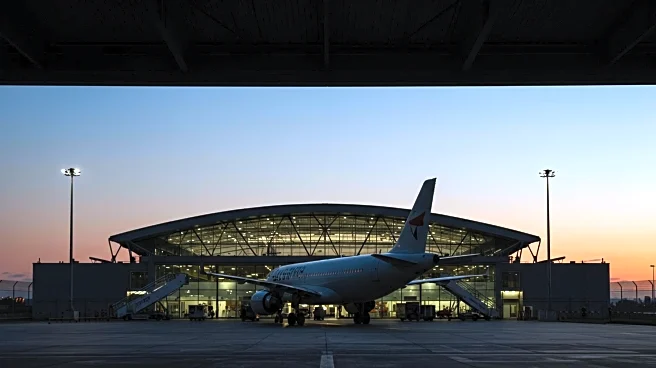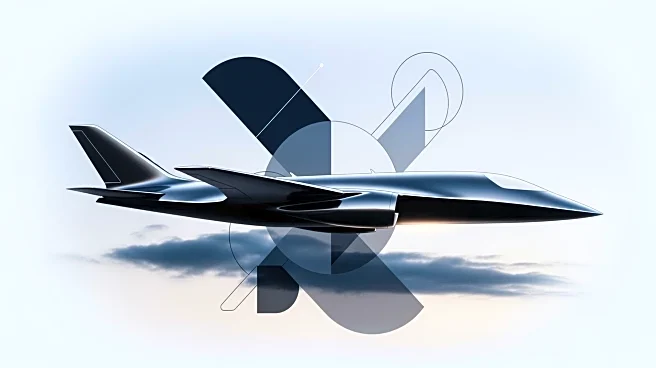What's Happening?
Jet2.com, a British leisure airline, has enhanced its maintenance, repair, and overhaul (MRO) capabilities by inaugurating a new hangar at Manchester Airport, England. The facility, covering approximately 68,000 square feet, replaces an older hangar and allows Jet2 to service three aircraft simultaneously. This expansion complements an existing hangar at Manchester, enabling the airline to work on six aircraft at once. The new site includes an apprentice training suite to support engineering apprentices, with over 30 currently employed. Jet2 operates a mixed fleet of Boeing and Airbus aircraft, with plans to phase out older models and expand its fleet by 2035. The airline also outsources some maintenance services to external providers, such as Willis Aviation Services at Teesside Airport.
Why It's Important?
The expansion of Jet2's maintenance capabilities is significant for the airline's operational efficiency and growth strategy. By increasing in-house MRO capacity, Jet2 can better manage its fleet maintenance, potentially reducing costs and improving turnaround times. This move also supports the airline's fleet expansion plans, which include transitioning to newer aircraft models. The investment in apprentice training highlights Jet2's commitment to developing skilled engineering personnel, which is crucial for maintaining high safety and service standards. The enhanced maintenance capabilities may also strengthen Jet2's competitive position in the leisure travel market, allowing it to offer more reliable services.
What's Next?
Jet2's new hangar is expected to facilitate the airline's fleet expansion and modernization efforts. As the airline phases out older Boeing models and increases its Airbus fleet, the enhanced maintenance capacity will be crucial. The apprentice training suite will continue to play a vital role in developing the next generation of aviation engineers. Additionally, Jet2's outsourcing agreements may evolve to accommodate the increased maintenance demands of a growing fleet. The airline's strategic investments in infrastructure and personnel are likely to support its long-term growth and operational goals.










